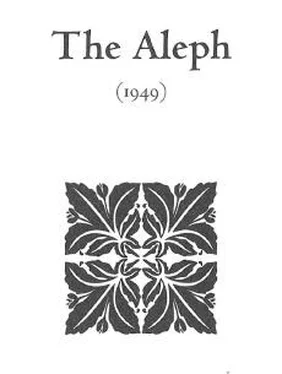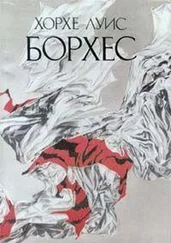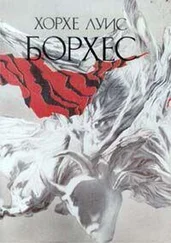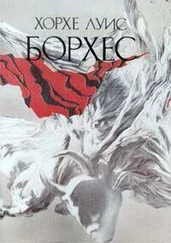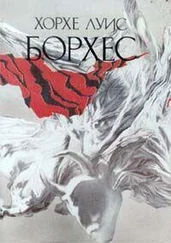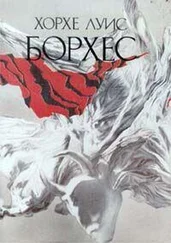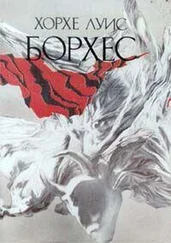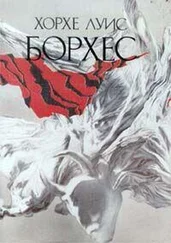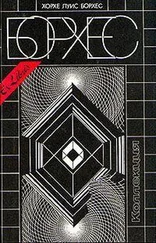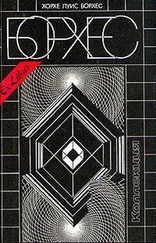Хорхе Борхес - Collected Fictions
Здесь есть возможность читать онлайн «Хорхе Борхес - Collected Fictions» весь текст электронной книги совершенно бесплатно (целиком полную версию без сокращений). В некоторых случаях можно слушать аудио, скачать через торрент в формате fb2 и присутствует краткое содержание. Год выпуска: 1999, ISBN: 1999, Издательство: Penguin (UK), Жанр: Старинная литература, на английском языке. Описание произведения, (предисловие) а так же отзывы посетителей доступны на портале библиотеки ЛибКат.
- Название:Collected Fictions
- Автор:
- Издательство:Penguin (UK)
- Жанр:
- Год:1999
- ISBN:9780140286809
- Рейтинг книги:5 / 5. Голосов: 1
-
Избранное:Добавить в избранное
- Отзывы:
-
Ваша оценка:
- 100
- 1
- 2
- 3
- 4
- 5
Collected Fictions: краткое содержание, описание и аннотация
Предлагаем к чтению аннотацию, описание, краткое содержание или предисловие (зависит от того, что написал сам автор книги «Collected Fictions»). Если вы не нашли необходимую информацию о книге — напишите в комментариях, мы постараемся отыскать её.
Collected Fictions — читать онлайн бесплатно полную книгу (весь текст) целиком
Ниже представлен текст книги, разбитый по страницам. Система сохранения места последней прочитанной страницы, позволяет с удобством читать онлайн бесплатно книгу «Collected Fictions», без необходимости каждый раз заново искать на чём Вы остановились. Поставьте закладку, и сможете в любой момент перейти на страницу, на которой закончили чтение.
Интервал:
Закладка:
The lower-caste neighborhoods of the city voiced a different complaint. The members of the priestly class gambled heavily, and so enjoyed all the vicissitudes of terror and hope; the poor (with understandable, or inevitable, envy) saw themselves denied access to that famously delightful, even sensual, wheel. The fair and reasonable desire that all men and women, rich and poor, be able to take part equally in the Lottery inspired indignant demonstrations—the memory of which, time has failed to dim. Some stubborn souls could not (or pretended they could not) understand that this was a novus ordo seclorum, a necessary stage of history.... A slave stole a crimson ticket; the drawing determined that that ticket entitled the bearer to have his tongue burned out. The code of law provided the same sentence for stealing a lottery ticket. Some Babylonians argued that the slave deserved the burning iron for being a thief; others, more magnanimous, that the executioner should employ the iron because thus fate had decreed.... There were disturbances, there were regrettable instances of bloodshed, but the masses of Babylon at last, over the opposition of the well-to-do, imposed their will; they saw their generous objectives fully achieved. First, the Company was forced to assume all public power. (The unification was necessary because of the vastness and complexity of the new operations.) Second, the Lottery was made secret, free of charge, and open to all. The mercenary sale of lots was abolished; once initiated into the mysteries of Baal, every free man automatically took part in the sacred drawings, which were held in the labyrinths of the god every sixty nights and determined each man's destiny until the next drawing. The consequences were incalculable. A lucky draw might bring about a man's elevation to the council of the magi or the imprisonment of his enemy (secret, or known by all to be so), or might allow him to find, in the peaceful dimness of his room, the woman who would begin to disturb him, or whom he had never hoped to see again; an unlucky draw: mutilation, dishonor of many kinds, death itself. Sometimes a single event—the murder of C in a tavern, B's mysterious apotheosis—would be the inspired outcome of thirty or forty drawings. Combining bets was difficult, but we must recall that the individuals of the Company were (and still are) all-powerful, and clever. In many cases, the knowledge that certain happy turns were the simple result of chance would have lessened the force of those outcomes; to forestall that problem, agents of the Company employed suggestion, or even magic. The paths they followed, the intrigues they wove, were invariably secret. To penetrate the innermost hopes and innermost fears of every man, they called upon astrologers and spies. There were certain stone lions, a sacred latrine called Qaphqa, some cracks in a dusty aqueduct—these places, it was generally believed, gave access to the Company, and well- or ill-wishing persons would deposit confidential reports in them. An alphabetical file held those dossiers of varying veracity.
Incredibly, there was talk of favoritism, of corruption. With its customary discretion, the Company did not reply directly; instead, it scrawled its brief argument in the rubble of a mask factory. This apologia is now numbered among the sacred Scriptures. It pointed out, doctrinally, that the Lottery is an interpolation of chance into the order of the universe, and observed that to accept errors is to strengthen chance, not contravene it. It also noted that those lions, that sacred squatting-place, though not disavowed by the Company (which reserved the right to consult them), functioned with no official guarantee.
This statement quieted the public's concerns. But it also produced other effects perhaps unforeseen by its author. It profoundly altered both the spirit and the operations of the Company. I have but little time remaining; we are told that the ship is about to sail—but I will try to explain.
However unlikely it may seem, no one, until that time, had attempted to produce a general theory of gaming. Babylonians are not a speculative people; they obey the dictates of chance, surrender their lives, their hopes, their nameless terror to it, but it never occurs to them to delve into its labyrinthine laws or the revolving spheres that manifest its workings. Nonetheless, the semi-official statement that I mentioned inspired numerous debates of a legal and mathematical nature. From one of them, there emerged the following conjecture: If the Lottery is an intensification of chance, a periodic infusion of chaos into the cosmos, then is it not appropriate that chance intervene in every aspect of the drawing, not just one? Is it not ludicrous that chance should dictate a person's death while the circumstances of that death—whether private or public, whether drawn out for an hour or a century—should not be subject to chance? Those perfectly reasonable objections finally prompted sweeping reform; the complexities of the new system (complicated further by its having been in practice for centuries) are understood by only a handful of specialists, though I will attempt to summarize them, even if only symbolically.
Let us imagine a first drawing, which condemns a man to death. In pursuance of that decree, another drawing is held; out of that second drawing come, say, nine possible executors. Of those nine, four might initiate a third drawing to determine the name of the executioner, two might replace the unlucky draw with a lucky one (the discovery of a treasure, say), another might decide that the death should be exacerbated (death with dishonor, that is, or with the refinement of torture), others might simply refuse to carry out the sentence----That is the scheme of the Lottery, put symbolically. In reality, the number of drawings is infinite. No decision is final; all branch into others. The ignorant assume that infinite drawings require infinite time; actually, all that is required is that time be infinitely subdivisible, as in the famous parable of the Race with the Tortoise. That infinitude coincides remarkably well with the sinuous numbers of Chance and with the Heavenly Archetype of the Lottery beloved of Platonists.... Some distorted echo of our custom seems to have reached the Tiber: In his Life of Antoninus Heliogabalus, AElius Lampridius tells us that the emperor wrote out on seashells the fate that he intended for his guests at dinner—some would receive ten pounds of gold; others, ten houseflies, ten dormice, ten bears. It is fair to recall that Heliogabalus was raised in Asia Minor, among the priests of his eponymous god.
There are also impersonal drawings, whose purpose is unclear. One drawing decrees that a sapphire from Taprobana be thrown into the waters of the Euphrates; another, that a bird be released from the top of a certain tower; another, that every hundred years a grain of sand be added to (or taken from) the countless grains of sand on a certain beach. Sometimes, the consequences are terrible.
Under the Company's beneficent influence, our customs are now steeped in chance. The purchaser of a dozen amphorae of Damascene wine will not be surprised if one contains a talisman, or a viper; the scribe who writes out a contract never fails to include some error; I myself, in this hurried statement, have misrepresented some splendor, some atrocity— perhaps, too, some mysterious monotony.... Our historians, the most perspicacious on the planet, have invented a method for correcting chance; it is well known that the outcomes of this method are (in general) trust-worthy—although, of course, they are never divulged without a measure of deception. Besides, there is nothing so tainted with fiction as the history of the Company.... A paleographic document, unearthed at a certain temple, may come from yesterday's drawing or from a drawing that took place centuries ago. No book is published without some discrepancy between each of the edition's copies. Scribes take a secret oath to omit, interpolate, alter. Indirect falsehood is also practiced.
Читать дальшеИнтервал:
Закладка:
Похожие книги на «Collected Fictions»
Представляем Вашему вниманию похожие книги на «Collected Fictions» списком для выбора. Мы отобрали схожую по названию и смыслу литературу в надежде предоставить читателям больше вариантов отыскать новые, интересные, ещё непрочитанные произведения.
Обсуждение, отзывы о книге «Collected Fictions» и просто собственные мнения читателей. Оставьте ваши комментарии, напишите, что Вы думаете о произведении, его смысле или главных героях. Укажите что конкретно понравилось, а что нет, и почему Вы так считаете.
